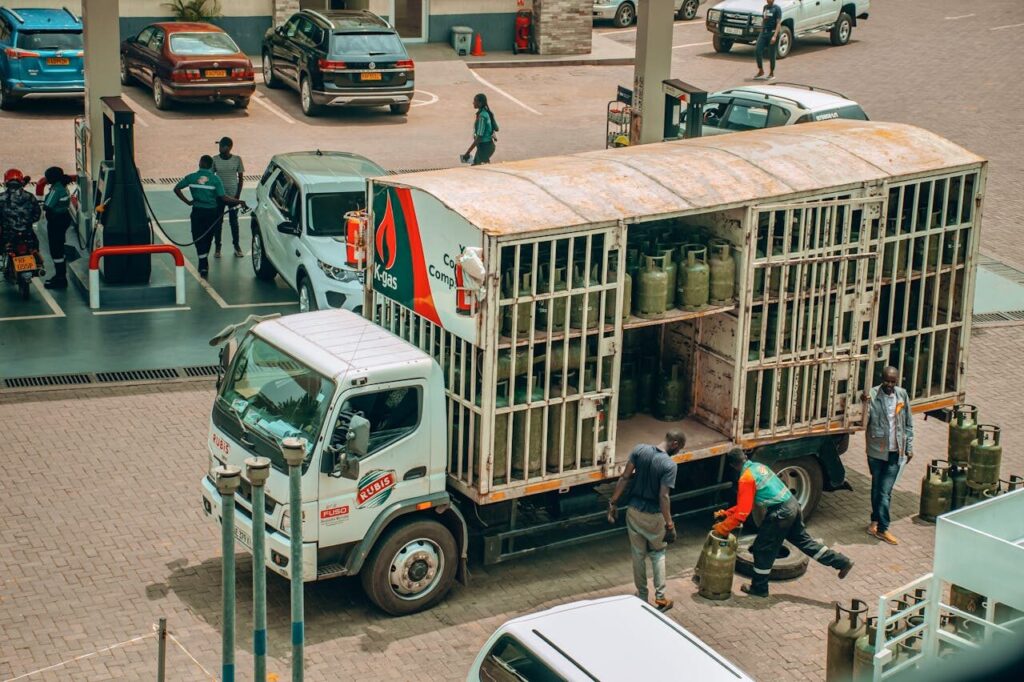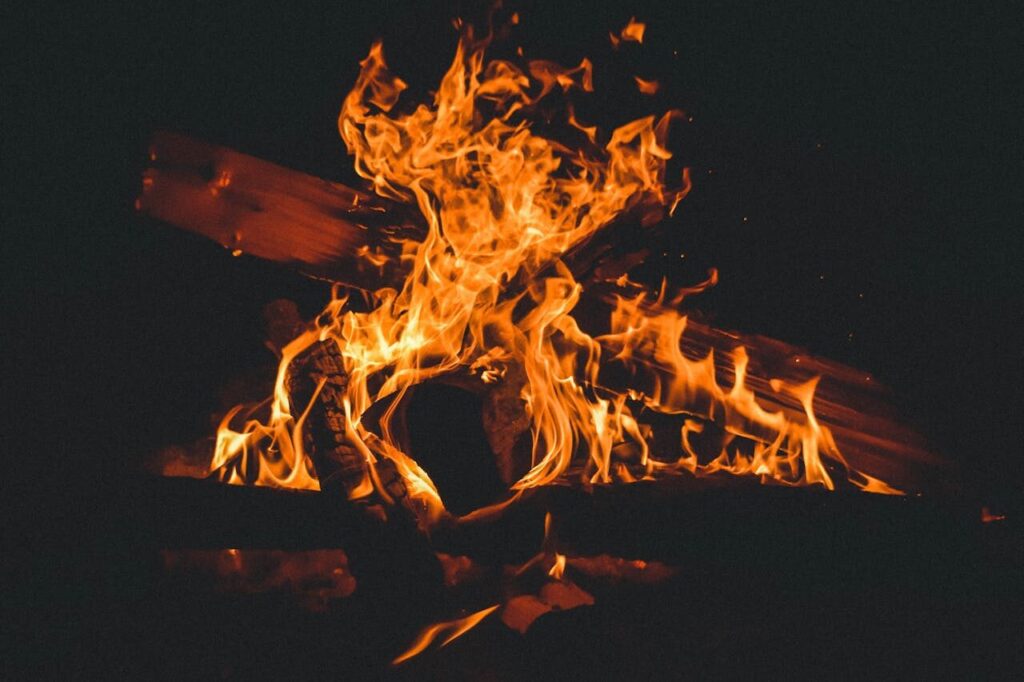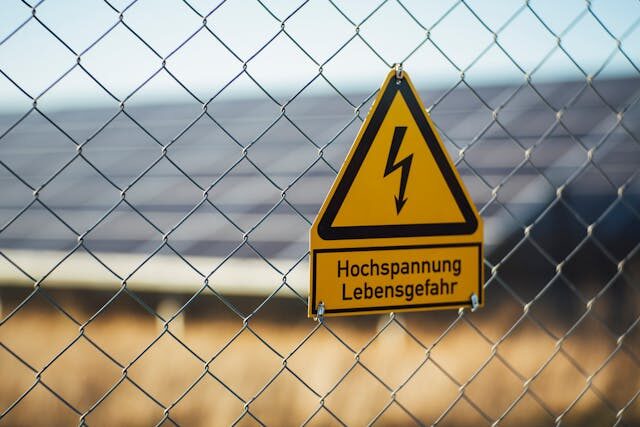Gas is one of the most useful resources in our homes. It helps us cook meals, heat our water, and warm our rooms. But while gas serves many purposes, it can also be deadly. That’s why learning how to stay safe from gas leaks is more important now than ever before.

⚠️ Understanding the Silent Killer: What Makes Gas So Dangerous?
Most households today rely on LPG (Liquefied Petroleum Gas) — a powerful, convenient fuel source. But when gas leaks, it becomes a silent killer. Unlike fire or smoke, gas can fill a room without being seen, and its smell can often be masked by other scents. If you don’t know how to stay safe from gas leaks, one mistake could lead to fire, suffocation, or explosion.
🏡 Gas Is No Longer Just in Kitchens — It’s Everywhere
We used to think gas belonged only in the kitchen. Today, people use gas heaters in bedrooms, geysers in bathrooms, and even gas cylinders in temporary outdoor setups. This widespread use increases the risk. Knowing how to stay safe from gas leaks is essential not only for kitchens but also for every room where gas is used.
✅ SafeMe Tips: How to Stay Safe from Gas Leaks
Below are seven essential safety habits, with expanded advice to help you and your family live securely.
1. Install Proper Ventilation in Every Gas-Using Room
Proper ventilation is a key part of how to stay safe from gas leaks. Bathrooms with gas geysers should never be sealed tightly. Always install a window, louver vent, or an exhaust fan to ensure fresh air flow. Without ventilation, even a small leak can fill the room and cause serious breathing problems or suffocation.
2. Always Turn Off the Regulator After Using Gas
One of the simplest rules in how to stay safe from gas leaks is to turn off the gas regulator immediately after cooking. Many people forget and leave the valve open, increasing the risk of leakage overnight. Make it a family habit — just like turning off lights or locking the door. Teach everyone, including kids and elders, to do it without reminders.
3. Never Sleep With a Gas Heater On
Sleeping with a gas heater running in a closed room is extremely dangerous. When you sleep, you may not notice gas buildup or a drop in oxygen levels. Following how to stay safe from gas leaks means avoiding such risks entirely — turn the heater off before bed and use electric alternatives. Your sleep should be peaceful, not life-threatening.
4. Use Safer Heating Systems Like Floor Radiant Heating
Instead of relying on indoor gas heaters, consider safer systems like underfloor radiant heating. In this setup, heated water pipes run beneath the surface, powered by a central boiler mounted safely away from living areas. It distributes warmth evenly without any gas combustion inside the room. This is a smart and reliable way in how to stay safe from gas leaks in winter.
5. Inspect Gas Cylinders Carefully Before Buying
When buying a gas cylinder, don’t just check its weight — inspect the whole unit. Look for any dents, rust, or welding defects, and make sure the washer ring is intact. One crucial step in how to stay safe from gas leaks is being proactive about cylinder quality. In some places, official inspection systems are weak, so it’s your job to ensure safety.
6. Install Your Cylinder Outside If Possible
Keeping the gas cylinder outside the living space can dramatically reduce danger in case of a leak. If you live on the ground floor, build a small iron safety box to protect the cylinder from damage or theft. This reduces gas exposure inside your home, especially in kitchens or bedrooms. Smart storage is part of how to stay safe from gas leaks.
7. Use a Gas Leak Detector or Sensor
Gas detectors are affordable devices that can save your life. They detect leaks early and give a loud alarm before danger escalates. Adding a detector is one of the most effective upgrades in how to stay safe from gas leaks. Install one near your kitchen, bathroom, or any room where gas is used frequently.
🔥 What to Do Immediately If Gas Fills Your House
If you ever walk into your home and realize that gas has leaked and filled the air, you must act fast, calmly, and carefully. This is one of the most critical parts of knowing how to stay safe from gas leaks — and your decisions in these next few moments could save lives.

1. Do NOT Touch Any Electrical Switches
Do not switch on or off any light or fan. The smallest spark — even one you can’t see — can cause a deadly explosion if gas is present. If your main MCB or electricity switch is located outside your living area (like in an open corridor), you can turn it off. But if it’s inside a gas-filled room, leave it. A spark inside the switch box could ignite the entire house.
2. Open All Windows and Doors Immediately
Ventilation is your biggest ally. Throw open every door and window you can find. This helps fresh air enter and pushes the heavy LPG gas out. The more airflow you create, the faster the dangerous gas will be cleared.
3. Evacuate Everyone — Especially Kids and Elderly
Quickly move all people, including children, elderly individuals, and sleeping family members, out of the house. Gas can cause suffocation, unconsciousness, or death in minutes. If someone is sleeping or slow to respond, wake them and help them outside immediately — their life may depend on it.
4. Turn Off the Gas Regulator — If It’s Safe
If you can safely identify the source of the leak (e.g., a gas cylinder in the kitchen, heater, or geyser), carefully approach and shut off the regulator. If the leak is from the cylinder itself, closing the valve will stop more gas from escaping. Then move away from the area without touching anything else.
5. Leave the House and Wait Outside

Once the doors and windows are open, and the regulator is off, leave the house and stay outside. Allow the gas to fully escape and give the air time to clear. This is a key part of how to stay safe from gas leaks — patience and distance are your protection.
6. Wait 4–5 Hours Before Re-entering
Give it at least 4 to 5 hours — especially if the leak was large or in a closed space. During this time, do not test lights or appliances. Even a flicker from a switch could create enough of a spark to ignite leftover gas. If it’s dark, use your phone’s flashlight, but avoid switching on anything plugged into power.
7. Check the Air — Then Safely Restore Power
After enough time has passed and the air feels fresh again, enter the home slowly and carefully. If you can breathe comfortably and detect no gas odor, it’s safer to begin restoring your home. Only after you’re 100% sure that the gas has cleared, you may turn on the lights.
✅ Remember This Safety Formula:
- Open all doors and windows
- Do not switch on/off any electrical device inside
- Evacuate everyone immediately
- Turn off the gas regulator
- Wait outside for several hours
- Check the air before using any electronics
- Use phone light, not wall switches, at night
- Turn on power only when you’re sure it’s safe
Knowing how to stay safe from gas leaks includes not just prevention but also emergency response. Every second counts in a gas leak situation — so don’t panic, don’t rush, and don’t take risks with electricity. Prioritize life. Prioritize air. Prioritize your safety.
Meet SafeMe: Your Secure Living Partner

SafeMe is more than a name — it’s a movement to build safer homes, communities, and lives. Our goal is to stop disasters before they happen by providing educational content, tools, and awareness. Whether it’s how to stay safe from gas leaks, online threats, or emotional abuse — SafeMe stands with you. Our future tools will even detect dangers in real time and help take action instantly.
📢 Take These Actions Now
Make these actions part of your home safety routine:
- ✅ Install a gas leak sensor near the cylinder or kitchen
- ✅ Ventilate your kitchen and bathroom
- ✅ Turn off your gas regulator after every use
- ✅ Avoid using gas appliances during sleep
- ✅ Teach every family member how to stay safe from gas leaks
- ✅ Build or buy a safety box for outdoor cylinder storage
- ✅ Buy only high-quality, certified cylinders
Your safety is in your hands. One smart choice today could save your life tomorrow.
Read More Articles:
- 🔗 Top NGOs in the World
- 🔗 Reasons People Don’t Donate
- 🔗 How to Choose a Campaign
- 🔗 Why Donate Online?
- 🔗 Top 10 Foundations in the World
- 🔗 Top 10 Most Charitable Countries
- 🔗 How to Start Fundraising
- 🔗 How to Become Successful in Fundraising
- 🔗 How to Fundraise Without Social Media
- 🔗 The Global Medical Debt Crisis
- 🔗 Importance of Donors in Healthcare
- 🔗 How to Get Help Paying for Emergency Surgery
- 🔗 How to Make Your Fundraiser Go Viral
- 🔗 How to Save a Life During a Medical Emergency
- 🔗 How to Ask for Donations Online
- 🔗 Financial Help for Hospital Bills
- 🔗 Wireless Security Cameras Risks
- 🔗 Facebook Hacking: What You Need to Know
- 🔗 How to Tackle with Suicidal Thoughts
